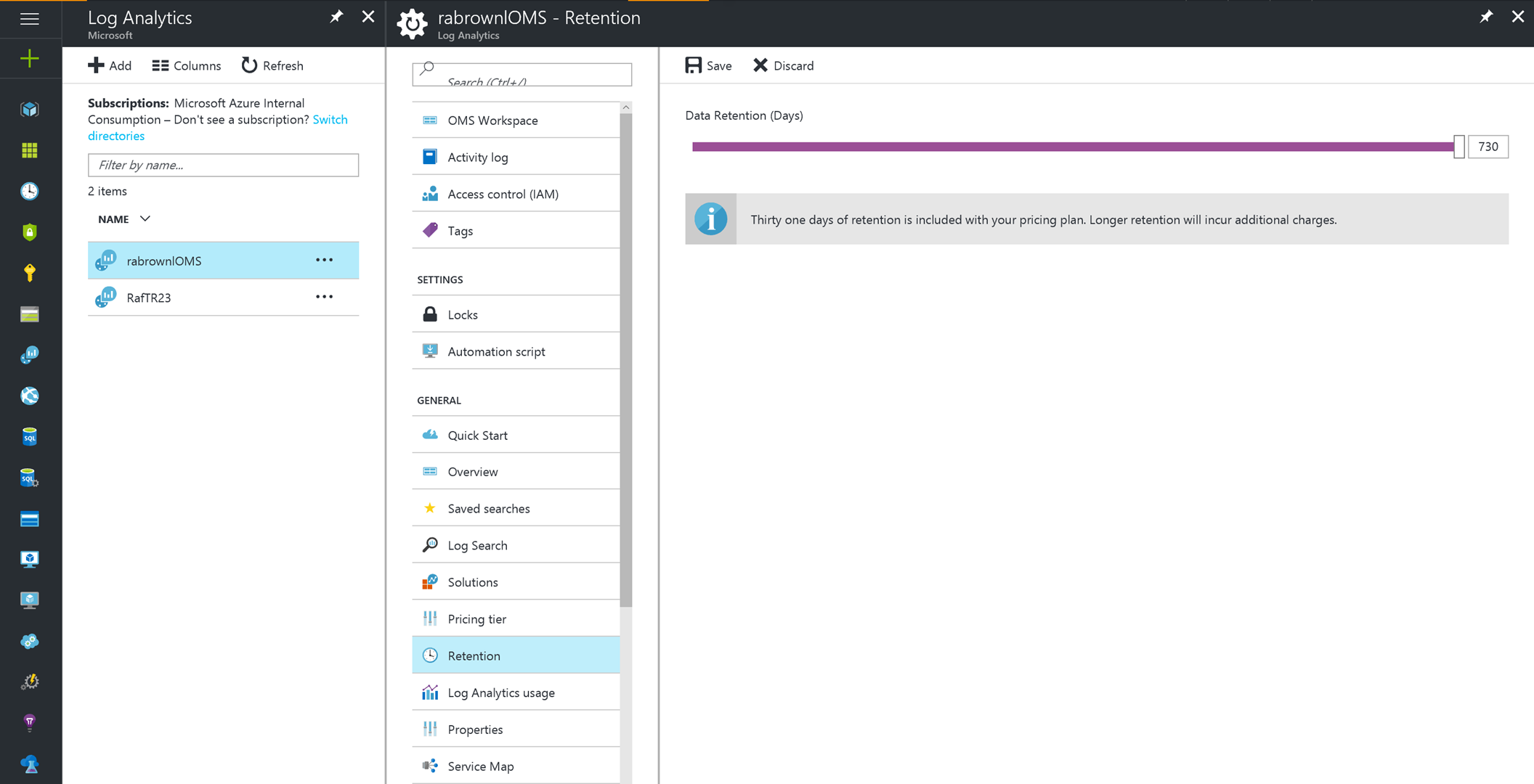Change OMS Log Analytics Retention Period in the Azure Portal
Where previously you could only change the retention settings for OMS Log Analytics using PowerShell, now you can do it using the Azure Portal.
The Log Analytics retention settings allow you to configure a minimum of 31 days (if not using a free tier) up to 730 days.
Login to https://portal.azure.com then go to Log Analytics, select your workspace name, then select Retention. Slide the bar to your desired number of days, then save it!
You can find more information on pricing here: https://azure.microsoft.com/en-us/pricing/details/log-analytics/ 
Comments
- Anonymous
March 22, 2017
The comment has been removed- Anonymous
March 29, 2017
Hi Nicholas, I'm not sure where you mean. But on the dashboard when you click on your "Data Plan" it will show your retention period accurately.
- Anonymous
- Anonymous
June 14, 2017
Rafaela,Can you share how to change the retention period via powershell?- Anonymous
July 09, 2017
Hi Alfonso, you can use this blog to call the correct resource. http://magicmarty.eu/2016/12/change-data-retention-period-for-log-analytics-in-operations-management-suite/ When I have some time I'll write one.
- Anonymous
- Anonymous
January 07, 2018
In case i want to have log retention more than 2 years how i can achieve that - we have requirement for 7 years log retention.- Anonymous
January 17, 2018
Sorry for the late reply. I have orchestrated for a customer to offload their data to blob storage. That means you're only sending the data you required instead of everything, and blog storage is very cheap, making a good archival solution. In this customer's case, the archival requirements was to meet the auditing policies, so there was no requirement in making it searchable.
- Anonymous
- Anonymous
January 08, 2018
What if i need older logs, up to 5 years? Is it possible in some way to correlate older logs?- Anonymous
January 17, 2018
Sorry for the late reply. I have orchestrated for a customer to offload their data to blob storage. That means you're only sending the data you required instead of everything, and blog storage is very cheap, making a good archival solution. In this customer's case, the archival requirements was to meet the auditing policies, so there was no requirement in making it searchable.
- Anonymous